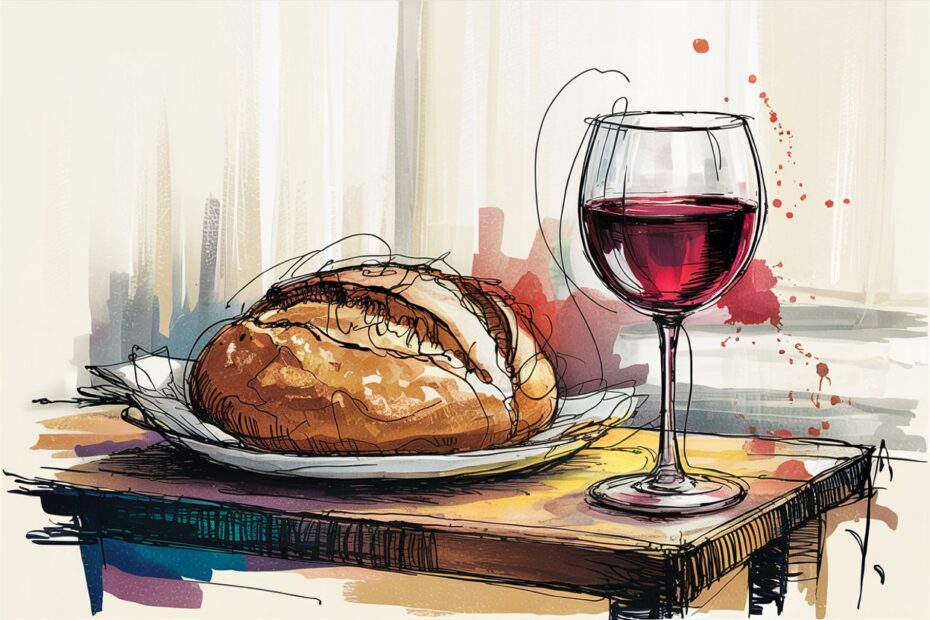By Judie Brown
“This bread is bread before the words of the Sacrament. But when the words of Christ come to it, it is the body of Christ. . . . Before the words of Christ it is a cup full of wine and water. When the words of Christ become operative, the blood which has redeemed the people is caused to be there.” – St. Ambrose
How often must we point to the obvious by saying that the real presence of Christ and the real presence of the preborn baby are not only suggestive of similar profound truths of our age but two of the most challenging stumbling blocks as well?
Those who support abortion cannot seem to come to terms with the fact that a baby dies during an abortion. Their mantra is so convoluted with deception and denial that one hardly knows where to begin.
And sadly, the same can also be said of would-be Catholics who receive the body of Christ in the Eucharist as though it were simply a little piece of bread. They arrive at that wondrous moment dressed for a picnic instead of a banquet with a king. What a sad state of affairs it is indeed.
As always, our hope resides in the word of God and in His love for each of His children, including those who mock Him at every turn. This is why Eucharistic catechesis is so badly needed today.
Note these words of Saint Paul to the Corinthians: “For Jews demand signs and Greeks look for wisdom, but we proclaim Christ crucified, a stumbling block to Jews and foolishness to Gentiles, but to those who are called, Jews and Greeks alike, Christ the power of God and the wisdom of God. For the foolishness of God is wiser than human wisdom, and the weakness of God is stronger than human strength.”
This passage comes as a reminder that even when the world rebukes our Lord, we are called to stand firm on this truth. When men laugh, we pray for them, and when they attempt to deny the truth, we repeat it all the more.
Writing on this same subject, commentator David G. Bonagura Jr. stated:
Actions speak louder than words. When the faithful receive the Eucharist as they receive any worldly good—standing in line, in our hands, from a fellow lay person—the sacral character of the Eucharist vanishes before our eyes. Will a non-practicing Catholic, amazed at how solemnly the Eucharist is treated in procession with incense and canopy, notice the contradiction of how nonchalantly it is treated inside the parish during Mass? If so, the efforts of Eucharistic catechesis will not bear fruit.
By the same token, when the gift of human sexuality is treated with disrespect and frivolity, leading to alleged unwanted pregnancy and an increasing number of babies killed instead of being welcomed and nurtured by their parents, the parallel could not be more stunning. Disdain for the preborn truly present for nine months prior to birth, like disrespect for the real presence of Christ in the Eucharist, emanates from ignorance, if not from willful hatred.
While both are miracles of God’s grace and gifts beyond description, they are also the focus of the growing malaise that defines the culture today.
The miracle of the Eucharist, like the miracle of procreation, is awe inspiring. But in our day it must be more, and so we turn to the words of Pope Leo XIV, who said:
What happens between us and God through the Eucharist is precisely that the Lord welcomes, sanctifies and blesses the bread and wine that we place on the altar, together with the offering of our lives, and he transforms them into the Body and Blood of Christ, the sacrifice of love for the salvation of the world.
God unites himself to us by joyfully accepting what we bring, and he invites us to unite ourselves to him by likewise joyfully receiving and sharing his gift of love.
That gift of love is something that Father Reginald Garrigou-Lagrange, OP, spoke of many years ago when he said, “Jesus has consented to take for himself the loathsome chalice of Gethsemane, so that he might give us the chalice of his precious blood which is raised up every morning on the altar. These two chalices represent the whole history of the world of souls. They are as it were the two pans of the scales of good and evil, and it is good that prevails.”
Christ gave Himself to us, and now He comes to us at every Mass. We love the Eucharist because we believe it is truly the body of Christ, and we love the innocent babies because they are His gifts. In the miracle of the Eucharist we find the grace to persist, and that is exactly as it should be.
